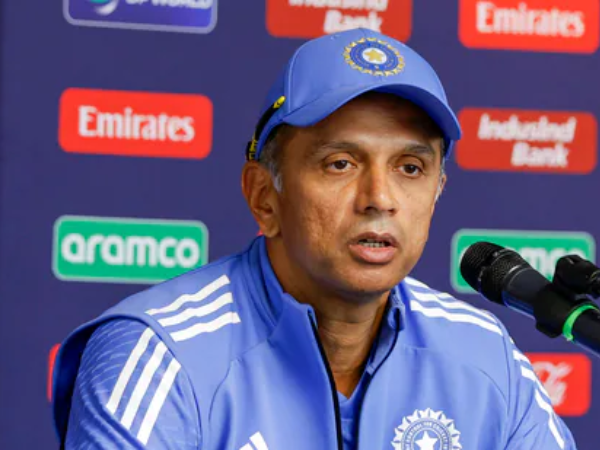"Without being disrespectful..": Rahul Dravid talks about Domestic Cricket in India
The ongoing Duleep Trophy has gained many viewers with the mainstays with the Indian national team playing in the domestic tournament. In recent years, there has been a significant focus on domestic cricket performances in India. Recently, the BCCI made it clear that the way to Indian team selection for a player is to first prove their prowess in domestic tournament. The same was iterated recently by newly appointed Indian head coach Gautam Gambhir. Moreover, earlier in 2024, Indian captain Rohit Sharma underscored the importance of prioritizing red-ball formats like the Ranji Trophy. Now, former Indian head coach Rahul Dravid talked about the positive impact of domestic tournaments.
Rahul Dravid credits domestic tournaments for the growth of Indian Cricket
In the recent time frame, the BCCI took a firm stance against players who did not engage in the premier domestic competition. Ishan Kishan and Shreyas Iyer were highlighted for their non-adherence to domestic cricket as they lost their central contract earlier this year. Now, Rahul Dravid, the former head coach of India, recently highlighted this shift in Indian cricket, attributing the sport's growth to an expanding talent pool that now includes players from even the most remote regions.
"If you look at Indian cricket today, Indian cricket is extremely strong, it's extremely powerful. One of the big reasons for that is that talent comes from everywhere, from all over the country," said Dravid. “You just look at the standard of the Ranji Trophy. In the old days when you played in the South Zone, other than playing Hyderabad or Tamil Nadu, I think it is fair to say, without being disrespectful, that a lot of other teams you could take it not for granted but you could certainly take it a little bit more lightly,” he added.
Furthermore, Dravid, who was instrumental in India’s T20 World Cup victory as head coach, also pointed out the vital role that the club cricket culture has played in this development. The previous belief that only city-based cricketers had the advantage of advancing to the national team has been effectively overturned, with players from smaller towns and rural areas increasingly making significant contributions to the sport.
“We need clubs to be strong. We need cricket not to be concentrated in the hands of a few people. We need cricket to be egalitarian, we need it to be all over the place," said Dravid. “You cannot have talent or you cannot have facilities concentrated only in one or two places. To get the best out of talent, we need to ensure that young boys and girls are getting access to good infrastructure in every part,” he further noted.
